Politics
Officials in talks with scientists to boost Anatolian leopard numbers
VAN

Officials from the Agriculture and Forestry Ministry have initiated consultations with scientists to explore strategies for increasing the population of the Anadolu Pars (Anatolian leopard), a species once thought extinct.
The announcement was made during the National Wildlife Congress, held in the eastern province of Van from May 21 to 24, under the auspices of the ministry.
“We are engaging with scientists to determine what we can do to support the proliferation of the Anatolian leopard,” General Director of Nature Conservation and National Parks (DKMP) Kadir Çokçetin said, speaking at the congress.
Çokçetin noted that recent camera trap images have confirmed the presence of the elusive big cat, once believed to be extinct in the region. “We are closely monitoring the areas where sightings have occurred and taking measures to protect these habitats,” he added.
The species had not been officially documented for decades until recent photographic evidence emerged. Its reappearance has prompted renewed scientific interest and conservation initiatives.
The congress brought together researchers from 18 universities, who presented 80 scientific papers focusing on wildlife research and conservation.
The event coincided with the International Day for Biological Diversity on May 22 and highlighted Türkiye’s rich biodiversity, home to approximately 12,000 plant species — nearly matching Europe’s total flora.
DKMP officials showcased the success of their biodiversity database project, “Noah’s Ark,” which cataloged 1.9 million data points across 13,404 flora and fauna taxa.
Agriculture and Forestry Minister İbrahim Yumaklı, in a video address to the congress, stated, “This year, the International Day for Biological Diversity is celebrated around the world with the theme ‘Harmony with Nature and Sustainable Development’. This important day reminds us that we need to deepen our awareness of our relationship with nature.”
He further stressed the broader mission of preserving Türkiye’s biodiversity. “We are expanding protected areas through science-based strategies, enhancing species monitoring with advanced technologies and documenting traditional ecological knowledge to safeguard our cultural heritage.”
Politics
Arrest, outrage after far-right man targets Turkish mayor’s dress
Authorities announced on Sunday that a suspect insulting a woman mayor was arrested while his party moved to expel him.
Mehmet Emin Korkmaz was behind a scandalous tweet that made rounds on the social media. Korkmaz, a member of the far-right Good Party (IP) hurled insults on Zeynep Güneş, mayor of Mihalgazi district of central province of Eskişehir. “Look at this mayor! She is more appropriate for milking cows in her farm than running a town,” Korkmaz wrote in a tweet accompanying a photo of Güneş. Güneş, a three-term mayor, usually wears a traditional dress popular among female villagers in parts of Türkiye. Korkmaz further disparaged Güneş as “uneducated” and mocked her şalvar, a part of her outfit.
Among mounting public outrage over remarks, prosecutors in Eskişehir launched an investigation into Korkmaz on charges of inciting hatred in public. Korkmaz was detained and remanded into custody on Sunday. IP Secretary-General Osman Ertürk Özel announced on the same day that they referred Korkmaz to the party’s disciplinary board for expulsion as he offered the party’s support to Güneş for “rude behavior she is exposed to.” Özel said in a social media post that only heinous people would insult others based on their choice of dressing. “Turkish women can rule the world, whatever they prefer to wear,” Özel wrote.
Ömer Çelik, spokesperson for ruling Justice and Development Party (AK Party) where Güneş serves as mayor, denounced the incident in a social media post and described it as “hate speech.” “We are grateful to everyone condemning this toxic rhetoric,” he wrote. Eskişehir Mayor Ayşe Ünlüce, of the main opposition Republican People’s Party (CHP) rushed to the side of Güneş. Ünlüce posted a photo of “Mayor Zeynep” in the same dress she was wearing when Korkmaz insulted her. “I condemn the discriminatory expressions towards the mayor. We fight this disrespectful mindset against women. As a member of the republic, which granted right to elect and be elected to women, I cannot accept this dirty language attacking women on what they wear. We are with Mayor Zeynep and against this mindset, the women will prevail in every venue,” she said in a statement.
Politics
Erdoğan welcomes Jordan’s King Abdullah II in Istanbul
President Recep Tayyip Erdogan on Saturday welcomed Jordan’s King Abdullah II with an official ceremony during the monarch’s visit to Türkiye.
Following the ceremony at the Dolmabahçe Presidential Office in Istanbul, Erdoğan and King Abdullah held a one-on-one meeting before talks expanded to include delegations from both countries.
Senior Turkish officials attending the meetings included Defense Minister Yaşar Güler, Foreign Minister Hakan Fidan, National Intelligence Organization head Ibrahim Kalın, and Erdoğan’s chief foreign policy and security adviser, Akif Çağatay Kılıç.
“In addition to bilateral relations, the two leaders will discuss current developments in the region and steps that can be taken to ensure stability,” Communications Director Burhanettin Duran said on X.
No further details were immediately available about the meeting.
Politics
Türkiye captures 2 suspected of spying for Mossad in Istanbul
The National Intelligence Organization (MIT) detained two individuals in Istanbul on suspicion of working for Israel’s intelligence service, Mossad, in a joint operation with the city police and judicial authorities, security sources said Friday.
The suspects, identified as Mehmet Budak Derya and Veysel Kerimoğlu, spied for and transferred information to Mossad over an extended period. They had been under MIT surveillance for some time before being apprehended in an operation referred to as the “MONITUM Activity.”
According to security sources, Derya, a mining engineer, founded a company in 2005 and opened a marble quarry in the Silifke district of southern Mersin province, later exporting products to multiple countries. His international trade activities drew the attention of Mossad, which allegedly established contact with him through an individual operating under the code name “Ali Ahmed Yassin,” described as a representative of a front company set up by Israeli intelligence.
Sources said Yassin visited Derya in 2012, presenting a potential business opportunity and inviting him to a meeting with company executives in Europe. Derya allegedly traveled abroad in 2013, where he met with individuals posing as company owners but later identified as members of Israeli intelligence.
Investigators said that during these meetings, Derya was instructed to hire Kerimoğlu, a Turkish citizen of Palestinian origin, and report back on their joint activities. Authorities said Derya complied with the directive, hiring Kerimoğlu and maintaining close personal and professional ties with him, while allegedly receiving instructions and even salary payments for Kerimoğlu from intelligence operatives.
Intelligence, trade-linked activities
Security sources said that after hiring Kerimoğlu, Derya expanded commercial operations targeting Middle Eastern countries. Through Kerimoğlu, he allegedly developed social and business relations with Palestinians opposed to Israel’s policies toward Middle Eastern states, including Gaza, and shared information about these contacts with Israeli intelligence.
Authorities said Derya also sought entry permits to Gaza by leveraging commercial links and allegedly transmitted photographs of storage facilities he searched for in the territory to Mossad operatives.
Investigators further said Kerimoğlu proposed expanding their commercial ventures into drone parts trading in early 2016. Derya allegedly relayed the proposal to Israeli intelligence officials, and after receiving approval, the first product samples were reportedly supplied by Mossad. Authorities noted that one of the individuals the suspects allegedly attempted to sell drones to, Mohamed Zouari, was assassinated in Tunisia in 2016 by Israeli intelligence.
Derya maintained contact with Israeli intelligence from 2013 until his detention, holding meetings in several European countries with operatives using code names including “Luis,” “Jesus/Jose,” “Dr. Roberto/Ricardo,” “Dan/Dennis,” “Mark,” “Elly/Emmy” and “Michael.”
Israeli intelligence provided Derya with encrypted communication systems to maintain operational secrecy. He was also subjected to polygraph tests in an Asian country in 2016 and again in a European country in 2024, both of which he allegedly passed, after which he reportedly assumed a more advanced role in intelligence-related operations.
Derya also procured SIM cards, internet modems and router devices from Türkiye and other countries, transmitting photographs of device labels containing technical details such as serial numbers, production data and MAC addresses to Mossad contacts.
Derya was most recently tasked with establishing a front company abroad to infiltrate international supply chains. According to the alleged plan, the company would coordinate procurement and shipment of products from countries designated by Mossad to final destinations identified by Israeli intelligence, working with three legitimate companies operating in Asia at different stages of the logistics process.
Authorities said preparations for the company included establishing bank accounts, designing a website, opening social media accounts and conducting research into potential partner firms. Derya’s latest meeting with Mossad operatives regarding the project was reportedly held abroad in January.
Turkish intelligence, in recent years, has uncovered several spy networks operated by independent groups, terrorist organizations like Daesh, or foreign intelligence agencies in Türkiye.
According to Turkish security sources, Mossad often uses online communication applications to recruit operatives to spy on Palestinians and other foreign nationals living in Türkiye.
Politics
Canada PM Carney calls Türkiye vital NATO ally, signals deeper ties
Canadian Prime Minister Mark Carney on Thursday called Türkiye a key NATO ally for Canada and said the two countries have strong potential to deepen cooperation, especially in trade and industrial sectors.
“Let me reinforce a few things in it. One is Türkiye is a vital partner in NATO, a vital partner in a very important and sometimes challenging part of the world,” Carney told reporters at a news conference in Vaughan.
Highlighting economic cooperation, he said: “In addition, there is tremendous opportunity. We have a series of opportunities to deepen our commercial relationships with Türkiye,” noting that he had begun discussions with President Recep Tayyip Erdoğan in New York at the U.N. General Assembly in September last year and planned to follow up.
He added that cooperation could extend to “aspects of defense cooperation and nuclear cooperation” while stressing the broader scope of the relationship.
“I’ll just make the observation that since we’re here, Türkiye is one of the leaders in manufacturing globally, including advanced manufacturing,” Carney said, noting that there are “areas where we can partner without question.”
During the news conference, Carney also announced “a new, more ambitious sovereign path” for Canada’s auto sector, unveiling a national automotive plan that includes $2.3 billion in new purchase and lease incentives to boost zero-emission vehicle adoption.
As part of the shift, the government is repealing the previous electric vehicle (EV) sales mandate and replacing it with stricter greenhouse gas emission standards for model years 2027 to 2032.
“We’re tightening by twofold our (greenhouse gas) emissions standards, and we’re giving the industry the flexibility on how they achieve that,” Carney said.
Canada suspended drone technology sales to Türkiye in 2020 after concluding its optical equipment attached to Turkish-made drones had been used by Azerbaijan while fighting illegally occupying Armenian forces in Karabakh, the Azerbaijani enclave Baku has since liberated.
In January 204, it announced it had dropped weapon export controls on drone parts, including the imaging and targeting system, shortly after Türkiye formally approved Sweden’s NATO membership bid.
Politics
Türkiye condemns suicide attack on mosque in Pakistan
Türkiye on Friday condemned the suicide bombing that struck a mosque in the Pakistani capital during Friday prayers, voicing strong solidarity with Pakistan in its fight against terrorism.
In a written statement on the Turkish social media platform NSosyal, the Turkish Foreign Ministry said it “strongly condemns the terrorist attack carried out today against a mosque during Friday prayers in Islamabad.”
The statement extended condolences to the families of those who lost their lives and to the people of Pakistan, wishing mercy upon the victims. It also said Türkiye would continue to stand in solidarity with Pakistan in its counterterrorism efforts.
According to Pakistani authorities, at least 31 people were killed and more than 169 others injured when a suicide bomber blew himself up inside a mosque in Islamabad during Friday prayers. The explosion hit the Imambargah Mosque, a Shia Muslim place of worship in Islamabad’s Shehzad Town area.
Mosharraf Zaidi, Prime Minister Shehbaz Sharif’s spokesman, said the attack at the Imambargah in Islamabad “is only the latest in a series of murderous terrorist attacks orchestrated by India.”
“India’s terrorist proxies will neither slow down economic recovery, nor divide Pakistani hearts, nor undermine Pakistan’s growing diplomatic capital,” Zaidi stated on X. New Delhi was yet to react to the allegations made by Islamabad.
Politics
Erdoğan touts victory of hope in Türkiye’s quake-hit region
Time may never be enough to ease the pain of the 2023 earthquake, but Türkiye is a nation of resilience, President Recep Tayyip Erdoğan said Friday, hailing what he called a “victory of hope” in the disaster-hit region.
Erdoğan spoke to a solemn and welcoming crowd in Osmaniye, flanked by rows of brand-new apartments built for the survivors of the devastating earthquakes that struck southeast Türkiye starting before dawn on Feb. 6, 2023.
The magnitude 7.7 and 7.6 tremors killed more than 53,500 people, destroyed or severely damaged hundreds of thousands of buildings and caused an estimated $150 billion (TL 6.54 trillion) in economic losses across 11 provinces, including Kahramanmaraş, Hatay, Gaziantep, Adıyaman, Malatya and Şanlıurfa.
“I see a picture of dignity, a victory of hope, of having been able to achieve all this, of having trusted both your state and your nation in the darkest nights and overcome these difficulties heart to heart,” Erdoğan told the thousands gathered in the city’s renewed center, as some onlookers waved Turkish flags from the balconies of their new homes.
“We were shaken by the most devastating disaster in our country’s history. We will mourn, but we will not refrain from moving on either,” Erdoğan said. “I congratulate every one of you for not yielding to despair.”
“We vowed to overcome this disaster, and in under three years, we have rebuilt and revived our earthquake-hit cities. We have kept our promise to you,” Erdoğan said.
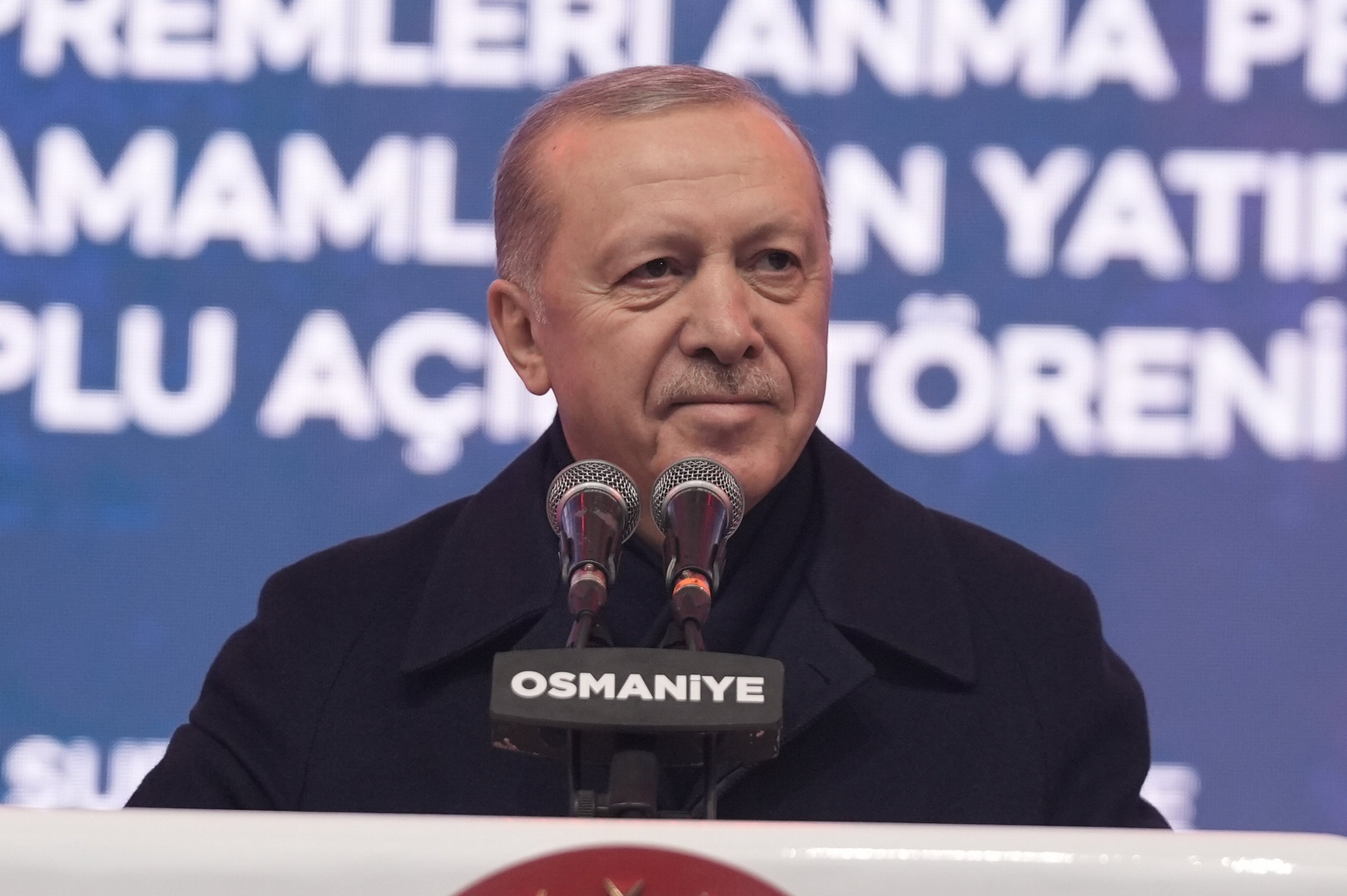
“To date, we have completed a total of 455,357 independent units, including 433,667 residences and 21,690 workplaces,” he noted.
Over TL 3.6 trillion has been used to repair damage and make cities stronger against disasters since Feb. 3, 2023, Erdoğan said, noting some TL 653 billion more has been allocated for 2026.
“I would like to express my heartfelt gratitude to all my fellow citizens for trusting us and sincerely supporting us from day one,” he added.
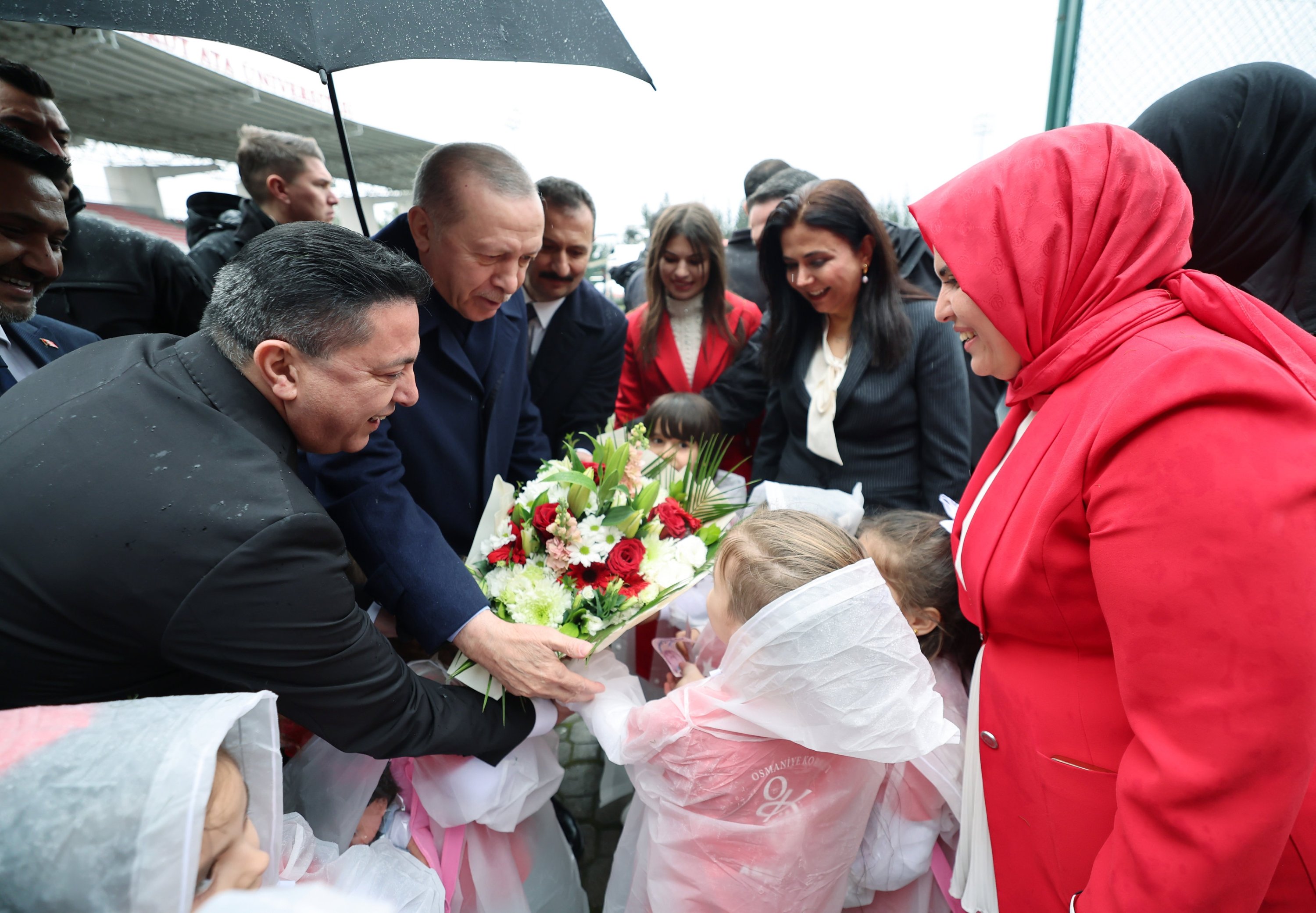
The Turkish president also hit out at his main opposition, the Republican People’s Party (CHP), for claiming his government’s pledge to rebuild homes for the disaster victims would not be fulfilled. Gesturing at the apartments before him, he said: “Here are the completed homes. No matter how much they deny it, our people know what we have accomplished.”
“We did not succumb to their toxic politics aimed at intimidating us and breaking our will,” he said. “We have shown the world the best example of state-nation solidarity, rose from our ashes and healed from the wounds of the earthquake together.”
Three years after devastating earthquakes, Türkiye has completed one of the largest reconstruction efforts in its history, rebuilding housing, infrastructure and economic networks across the affected provinces while mobilizing billions in domestic and international financing.
Rebuilding
Turkish officials launched a sweeping rebuilding program shortly after the disaster, pledging rapid housing reconstruction, economic revitalization and social rehabilitation.
Erdoğan repeatedly pledged to deliver permanent housing to survivors within a year, later expanding those commitments as construction progressed. More than 455,000 housing units and workplaces have been handed over to survivors across the quake-hit region as of early 2026.
Large-scale residential projects have been completed in districts such as Antakya and Defne in Hatay province, Nurdağı and Islahiye in Gaziantep province, and Onikişubat and Dulkadiroğlu in Kahramanmaraş province, areas that experienced some of the heaviest destruction. New housing developments incorporate stricter earthquake safety standards and expanded urban planning measures designed to improve long-term resilience.
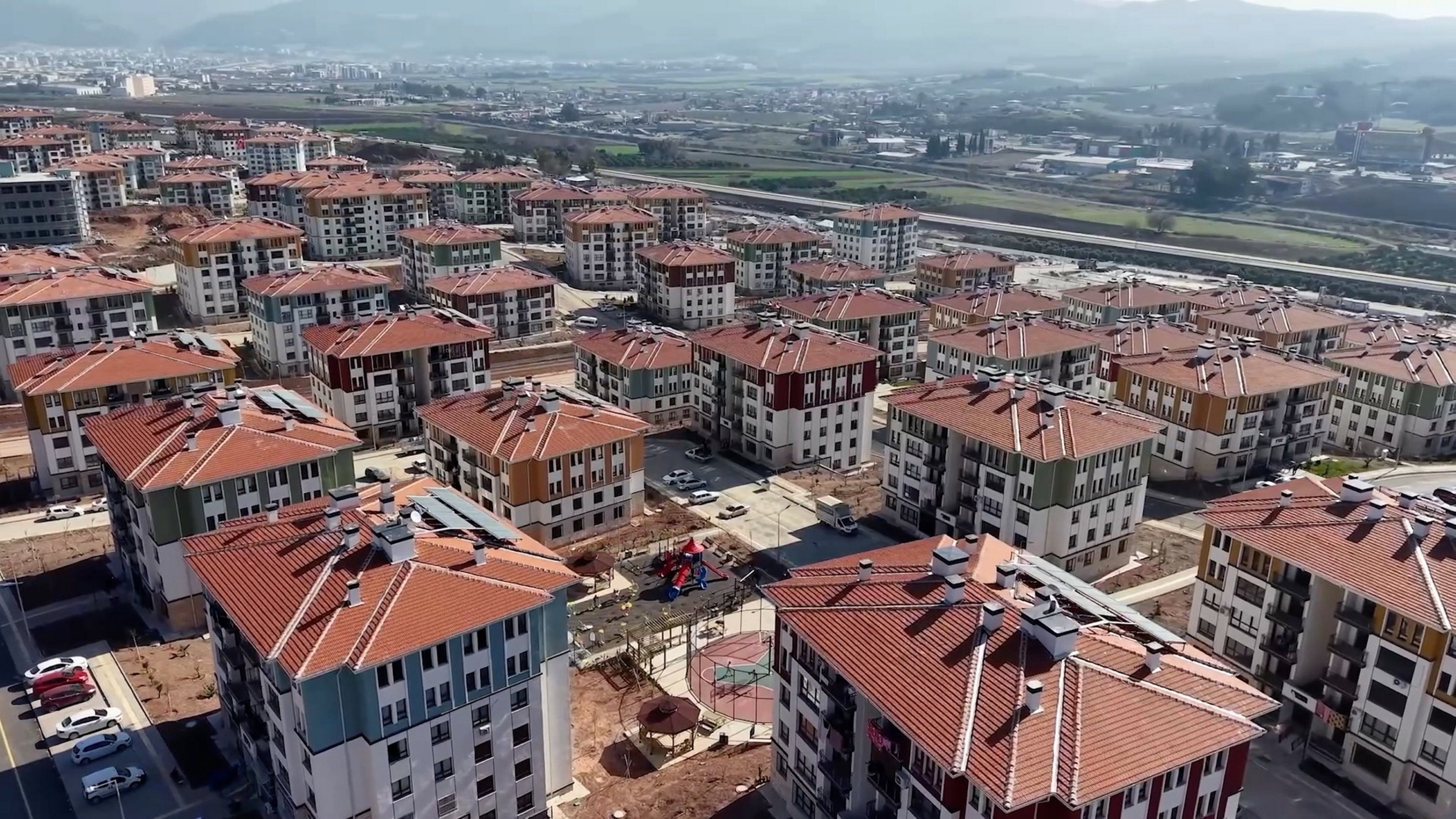
Government officials also prioritized rural reconstruction. International co-financing from the World Bank and the French Development Agency supported the rebuilding or renewal of approximately 2,800 rural homes, particularly in villages across Malatya and Adıyaman provinces.
Infrastructure, public services
Reconstruction has extended beyond housing to public infrastructure, including hospitals, schools, transportation networks and municipal services. New health care facilities have been constructed in Hatay, while dozens of schools have been rebuilt or reinforced across Kahramanmaraş and Adıyaman.
Urban transformation initiatives have introduced updated zoning regulations and strengthened construction oversight. Officials say new building codes require enhanced seismic resistance standards designed to reduce future disaster risks.
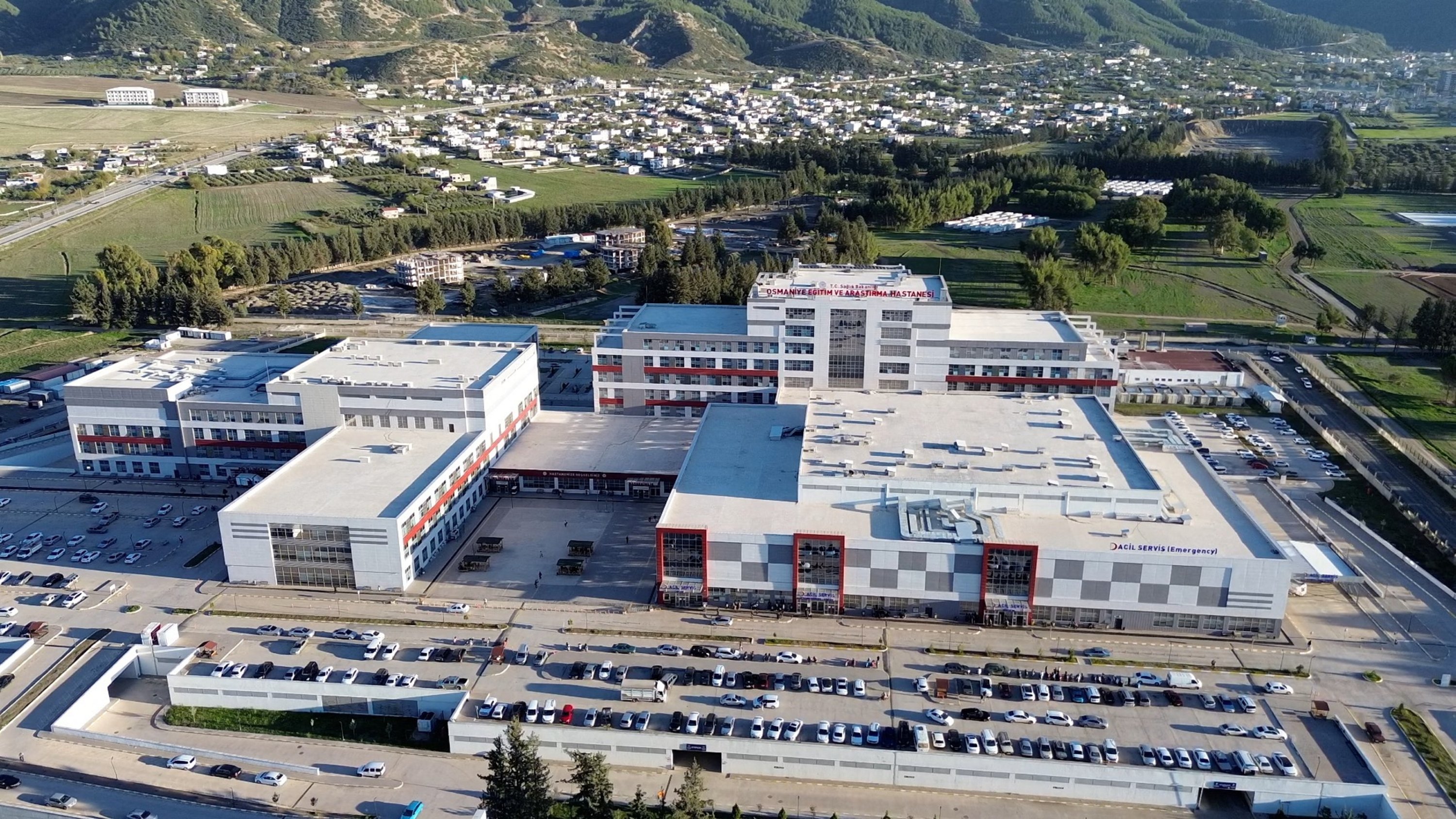
Global help, economic recovery
To finance recovery, Türkiye mobilized approximately TL 265 billion in external funding through partnerships with international financial institutions, development agencies and lenders. These funds supported rebuilding public infrastructure, strengthening urban resilience and sustaining economic activity in the region, officials say.
In 2023, the World Bank provided approximately TL 30.2 billion to support projects led by the Health Ministry, the Environment, Urbanization and Climate Change Ministry, and the state lender Ilbank. Another TL 13.7 billion was directed through the Small and Medium Enterprises Development and Support Administration, or KOSGEB, to help businesses maintain operations and preserve jobs.
The European Investment Bank added roughly TL 13.1 billion in financing that year for infrastructure and municipal recovery projects.
Additional international support continued in 2024. The World Bank provided approximately TL 18.3 billion for projects under the Industry and Technology Ministry and TL 7.4 billion for agricultural recovery programs through the Agriculture and Forestry Ministry. The Japan International Cooperation Agency extended about TL 11.8 billion to support urban reconstruction and health care investments.
Financing momentum continued into 2025 as reconstruction efforts expanded. The World Bank and the French Development Agency jointly provided approximately TL 14.4 billion to support rural housing projects. Meanwhile, the Islamic Development Bank contributed roughly TL 6.1 billion in long-term financing for urban transportation and reconstruction programs.
Authorities also launched the Disaster Reconstruction Fund in 2025 to accelerate rebuilding. The fund secured approximately TL 14.8 billion in financing, led by Abu Dhabi Commercial Bank with participation from Doğan Investment Bank.
Employment support
Officials said the financing programs were designed not only to rebuild physical infrastructure but also to stabilize regional economies. Funds have been directed toward protecting employment, preventing disruptions in credit access and ensuring liquidity for businesses, particularly small and medium-sized enterprises and exporters.
Economic rehabilitation measures included targeted loan programs, tax relief and investment incentives aimed at reviving manufacturing and agriculture across the affected provinces. Officials said these programs helped preserve production capacity and encouraged new investment in industrial zones in Gaziantep and Kahramanmaraş.
Social, cultural rehabilitation
Social recovery programs have focused on supporting displaced residents and restoring community life. Authorities established temporary accommodation centers, psychological support services and educational continuity programs for displaced students.
Cultural restoration projects have also been launched to rebuild historic sites and preserve regional heritage damaged in the disaster, particularly in Hatay, which contains numerous archaeological and religious landmarks.
Ongoing efforts
Government officials maintain that reconstruction efforts remain ongoing but say significant progress has been made in restoring normal living conditions across the region. Authorities project that full reconstruction and economic stabilization efforts will continue through the late 2020s as Türkiye completes long-term urban redevelopment and infrastructure strengthening projects in the region.
-
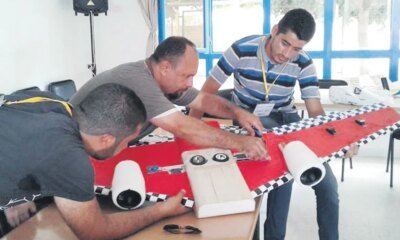
 Daily Agenda2 days ago
Daily Agenda2 days agoHistorical blow from MİT to Mossad: Trade-masked assassination network collapsed
-
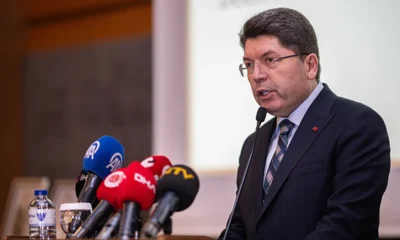
 Daily Agenda15 hours ago
Daily Agenda15 hours agoMinister of Justice Tunç: “The regulation regarding children involved in crime will come to the parliament after the commission works are completed.”
-
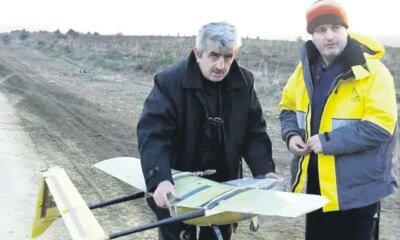
 Daily Agenda1 day ago
Daily Agenda1 day agoA Akıncı passed from this world
-
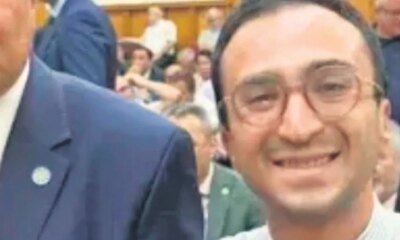
 Daily Agenda4 hours ago
Daily Agenda4 hours agoImmoral and excessive attack on women
-
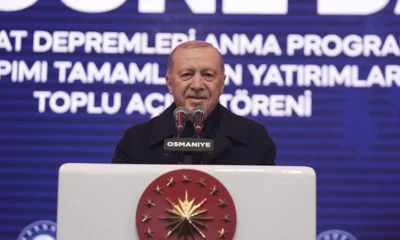
 Daily Agenda3 days ago
Daily Agenda3 days agoBreaking news! President Erdoğan spoke in Osmaniye on February 6: We were reborn to 86 million people, we showed the power of Türkiye!
-

 Sports15 hours ago
Sports15 hours agoTurkish center Alperen Şengün named in 2026 NBA All-Star
-
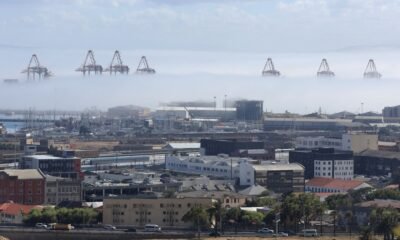
 Economy14 hours ago
Economy14 hours agoFacing US tariffs, South Africa steps toward trade deal with China
-

 Economy1 day ago
Economy1 day agoDanish apps aimed to find, boycott US goods on rise with Greenland crisis




